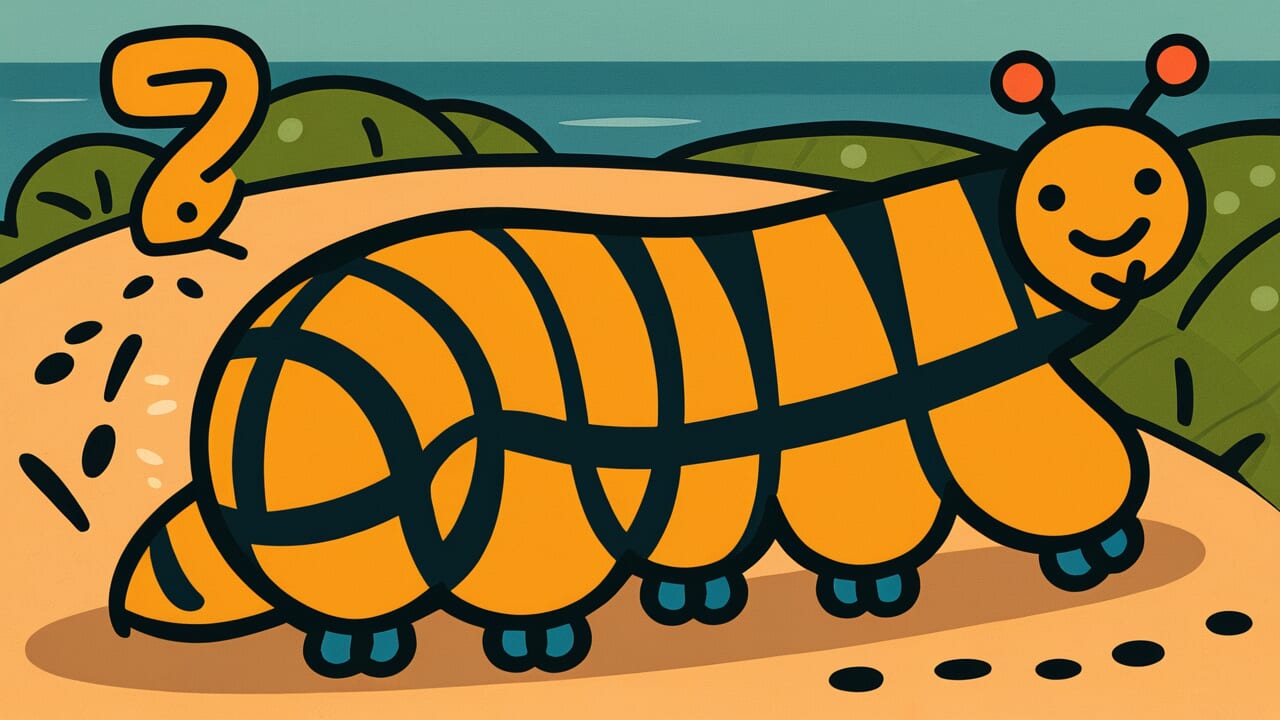How to Read “Even a caterpillar will move if you poke it”
Imomushi demo tsutsukeba ugoku
Meaning of “Even a caterpillar will move if you poke it”
This proverb means that even the most unresponsive or slow-reacting person will show some reaction when given the right stimulus or approach.
It’s based on observing human nature. Even people who seem absent-minded or unmotivated will respond and start moving when given the right motivation.
The proverb assumes that no person is completely unresponsive. Everyone has the capacity to react.
This saying is often used from the perspective of someone trying to motivate others. In education and guidance, it expresses hope that persistent effort will eventually get a response.
It also shows trust in human nature. Even seemingly apathetic people have the power to respond inside them.
Origin and Etymology
The exact literary origin of this proverb is unclear. However, its structure suggests it came from Japanese people observing nature closely over many generations.
Caterpillars move slowly and seem to have little reaction to their surroundings. But when you actually poke one with a stick, even the slowest caterpillar will definitely react somehow.
This observation led to insights about human behavior.
Japan has many proverbs that compare small animals and plants to human nature. Examples include “The firefly that doesn’t glow burns itself” and “A meowing cat doesn’t catch mice.”
The wisdom of understanding human nature through small creatures has been passed down through generations. This proverb about caterpillars, an insect everyone knows, likely emerged from this tradition.
When agriculture was central to life, people saw caterpillars on crops and vegetables daily. Their sluggish movement and reliable reaction when stimulated became a perfect metaphor for human nature.
The proverb contains wisdom from observing people. Even those who seem very slow to respond will definitely start moving when given the right stimulus.
Usage Examples
- That new employee is slow to respond, but even a caterpillar will move if you poke it, so let’s keep teaching him patiently
- My son is always spacing out, but even a caterpillar will move if you poke it—when I mention his favorite game, he suddenly becomes lively
Universal Wisdom
This proverb has been passed down through generations because it contains deep insight about human nature. It expresses fundamental trust in people: “All humans have the power to respond.”
Sometimes we want to give up when facing unresponsive or seemingly unmotivated people. But this proverb tells us to wait.
Even something as slow as a caterpillar will move when stimulated. So humans must have the power to respond too.
Behind this wisdom is the understanding that humans naturally respond to external stimuli. When someone seems unresponsive, it just means we haven’t found the right stimulus yet.
With the right approach, the power sleeping inside will definitely awaken. This is the hope the proverb offers.
The proverb also touches on the responsibility of those giving the stimulus. If someone doesn’t move, it’s not just their problem.
Maybe our approach isn’t appropriate. This thinking suggests that those trying to motivate others need creativity and patience too.
In human relationships, we shouldn’t give up on others. We should keep searching for the right stimulus. This is the universal wisdom this proverb has conveyed across time.
When AI Hears This
The force of poking a caterpillar is only a few millijoules of energy. But the energy the caterpillar uses to move is several hundred millijoules.
This means energy amplification of over 100 times is happening. This occurs because ATP chemical energy already stored in the caterpillar’s body is suddenly released when triggered by the small poke.
In other words, poking just “presses a switch.” The actual power source was already prepared separately.
This mechanism is exactly the characteristic of systems in a critical state. Snow piled on a mountain can cause a huge avalanche from just one small stone.
Uranium-235 undergoes nuclear fission when hit by a single neutron, then releases multiple neutrons causing a chain reaction. Nerve cells also release ion concentration differences stored in cell membranes all at once when stimulated beyond a threshold, firing electrical signals.
What’s interesting is the mathematical structure common to all these phenomena. The relationship between input and output isn’t linear.
It changes dramatically at a certain threshold. Physics calls this phase transition. The moment water becomes ice, the moment a magnet becomes magnetized, and the moment a caterpillar switches from rest to motion can all be described by the same mathematical model.
The world where small stimuli create large changes is actually predictable through equations.
Lessons for Today
This proverb teaches modern people the importance of continuing to believe in human potential.
In modern society, we tend to give up when results don’t come quickly. When subordinates don’t move as expected or children show no motivation, we conclude “this person is hopeless.”
But this proverb tells us to wait. Maybe we just haven’t found the right stimulus yet.
What matters is the effort to find an approach that fits each person. Praise might work for one person, while another needs concrete goal-setting.
Rather than a one-size-fits-all approach, we need to find methods that reach each person’s heart.
You can also apply this proverb to yourself. Even if you feel unmotivated or unable to move right now, you can definitely start moving with the right stimulus.
Don’t blame yourself. Instead, try to discover what moves your heart.
Humans always have the power to respond. This trust is the first step toward better relationships and personal growth.



Comments